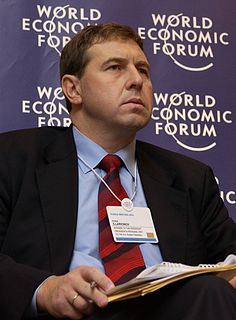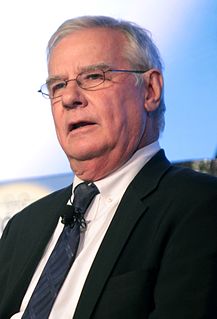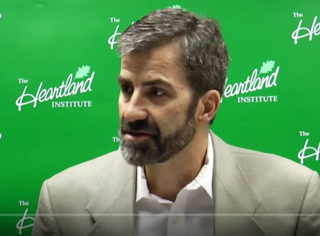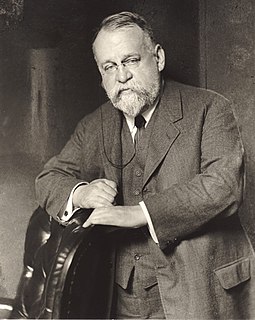A Quote by Clive Thompson
Politicians or pundits can distort or cherry-pick climate science any way they want to try and gain temporary influence with the public. But any serious industrialist who's facing 'climate exposure' - as it's now called by money managers - cannot afford to engage in that sort of self-delusion.
Related Quotes
I don't like to claim that I am an expert on anything, but I have enough knowledge about climate science and climate system to be able to write scientific papers and go to meetings and talk about monsoon systems and talk about any other things that you want to discuss about climate science issues. I'm as qualified as anybody that you know on this planet on this topic.
Despite the international scientific community's consensus on climate change, a small number of critics continue to deny that climate change exists or that humans are causing it. Widely known as climate change "skeptics" or "deniers," these individuals are generally not climate scientists and do not debate the science with the climate scientists.
I’ve often said that global climate change is an issue where no one has the luxury of being “half-pregnant.” You either are or you aren’t. And so it is with climate change. You either understand and accept the science – or you don’t. Folks this isn’t a cafeteria where you can pick and choose and accept the science that tells us what is happening, but then reject the science that warns us what will happen.
The counterculture has nothing to do with Dolce & Gabbana having a 'Hippy Summer' or something. Street kids, and kids who want to live in any sort of counter-cultural experience other than what's being presented by the mainstream media or political climate, or 'normal' cultural climate, are never going to look like that.
The conference also has a moral duty to examine the corruption of science that can be caused by massive amounts of money. The United States has disbursed tens of billions of dollars to climate scientists who would not have received those funds had their research shown climate change to be beneficial or even modest in its effects. Are these scientists being tempted by money? And are the very, very few climate scientists whose research is supported by industry somehow less virtuous?
The scientists Heartland works with demanded we host a ninth conference this year to foster a much-needed frank, honest, and open discussion of the current state of climate science and we just couldn't refuse. The public, the press, and the scientific community will all benefit from learning about the latest research and observational data that indicate climate science is anything but 'settled.
Any objective look at what science has to say about climate change ought to be sufficient to persuade reasonable people that the climate is changing and that humans are responsible for a substantial part of that - and that these changes are doing harm and will continue to do more harm unless we start to reduce our emissions.

































